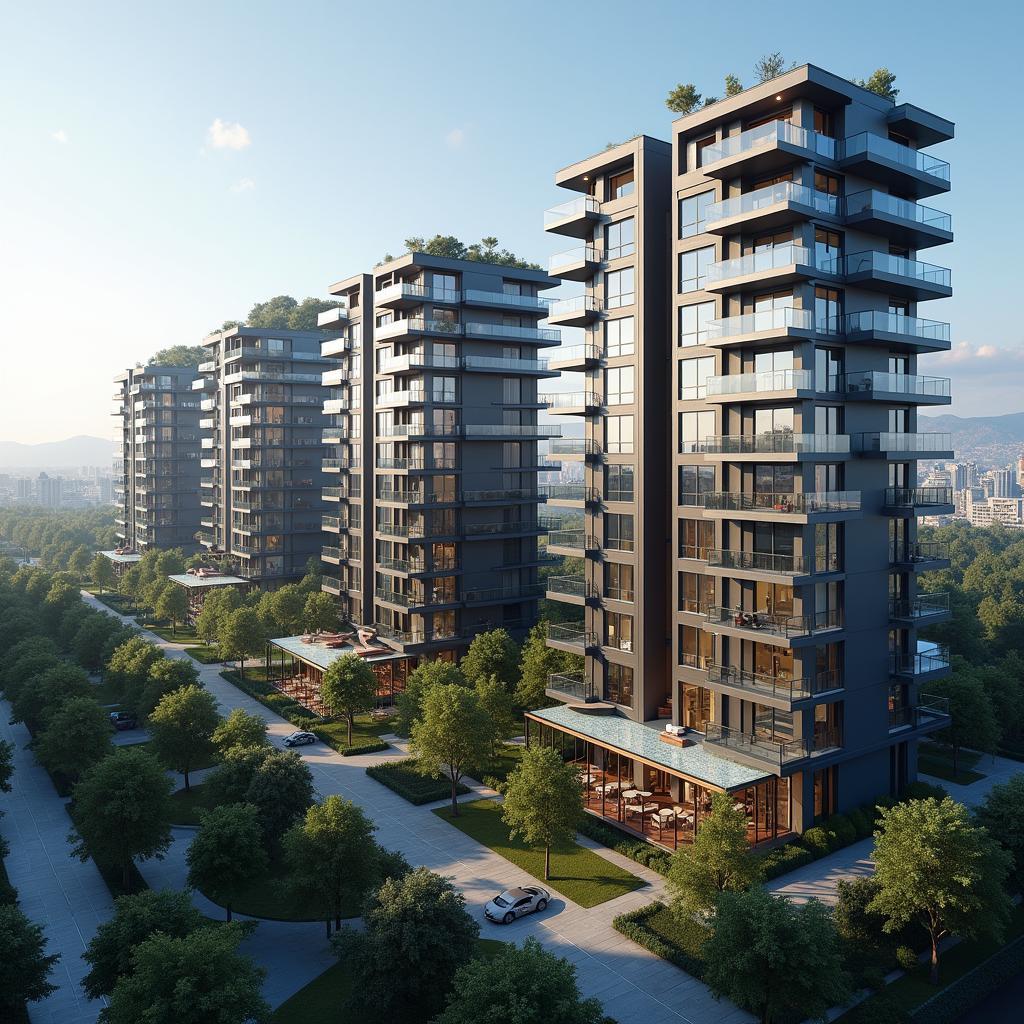Housing development policy has been a recurring theme in IELTS Writing Task 2, appearing regularly in recent years. Based on analysis of past exam questions, this topic has appeared in various forms focusing on government intervention in housing markets, particularly regarding luxury developments.

Analysis of Topic and Question Types
One of the most frequently appearing question types on this subject is:
Some people believe that governments should restrict luxury housing developments to ensure affordable housing for everyone. Others think the housing market should be free from government intervention. Discuss both views and give your opinion.
This question requires candidates to:
- Discuss arguments for government restrictions
- Examine arguments for free market housing
- Present and justify their own position
Band 9 Sample Essay
Living in decent housing is a fundamental human need, and the debate over government intervention in luxury housing development reflects the complexity of meeting this need in modern societies. While some advocate for restrictions on high-end developments, I believe a balanced approach combining market freedom with targeted government oversight is most effective.
Those supporting government restrictions argue that limiting luxury developments would increase affordable housing availability. They contend that developers naturally gravitate toward profitable luxury projects, leading to a shortage of affordable options. For instance, in cities like Mumbai and Shanghai, the proliferation of luxury apartments has coincided with severe shortages of middle-income housing, forcing many residents to live in substandard conditions.
However, proponents of free market housing present compelling counterarguments. They maintain that government restrictions could discourage investment and reduce overall housing supply. The construction of luxury properties often cross-subsidizes affordable housing projects and generates tax revenue that governments can reinvest in social housing. Moreover, market forces naturally respond to demand across different price segments.
In my view, the optimal solution lies in smart regulation rather than strict restrictions. Governments should implement policies like inclusionary zoning, requiring developers to include a percentage of affordable units in luxury projects. This approach maintains market dynamism while ensuring broader housing accessibility. Cities like Singapore have successfully demonstrated how such balanced policies can create inclusive housing markets.
Band 7 Sample Essay
The issue of government control over luxury housing development has become increasingly important in many countries. While some people support strict regulations, others believe in free market principles. I will discuss both perspectives and share my opinion.
Supporters of government restrictions argue that controlling luxury housing development is necessary. First, it helps ensure that more affordable housing is available for average citizens. When developers focus too much on luxury projects, ordinary people struggle to find homes they can afford. Second, government intervention can prevent the creation of exclusive neighborhoods that increase social inequality.
On the other hand, those who oppose government restrictions have valid points. They believe that market forces should determine housing development. When governments interfere too much, it can reduce investment in construction and actually lead to housing shortages. Additionally, luxury developments create jobs and generate tax revenue that can benefit the whole community.
In my opinion, some government oversight is necessary, but complete restrictions are not the answer. A better approach would be to create incentives for developers to build both luxury and affordable housing. This could include tax benefits for including affordable units in luxury developments.
Vocabulary Analysis
- proliferation (n) /prəˌlɪf.əˈreɪ.ʃən/ – rapid increase in numbers
- cross-subsidize (v) /krɒs ˈsʌb.sɪ.daɪz/ – support one product/service through profits from another
- inclusionary (adj) /ɪnˈkluː.ʒən.er.i/ – promoting inclusion
- substandard (adj) /ˌsʌbˈstæn.dəd/ – below normal quality
- incentives (n) /ɪnˈsen.tɪv/ – something that encourages action
Additional Practice Topics
For further practice, consider these related topics:
- Should governments provide free housing for low-income citizens?
- How can cities balance development with environmental protection?
- What role should private developers play in providing affordable housing?
Share your practice essays in the comments section for feedback and discussion.